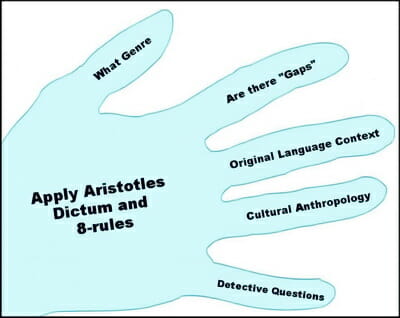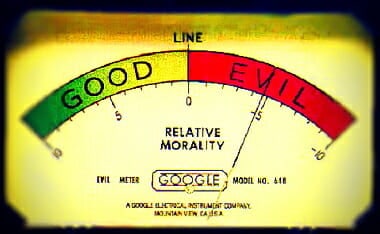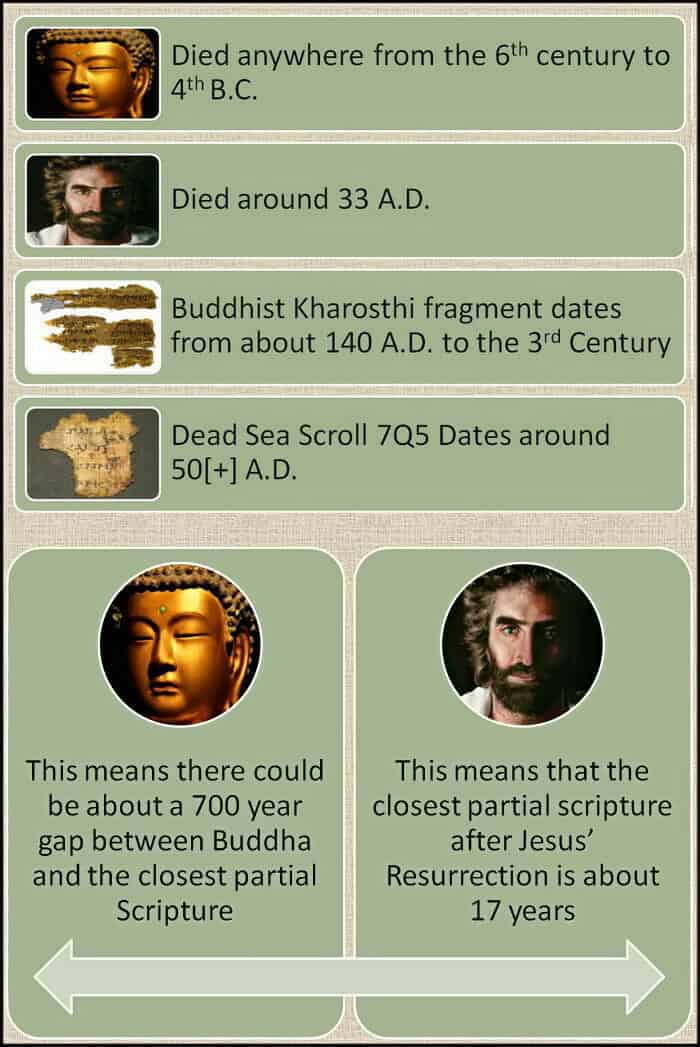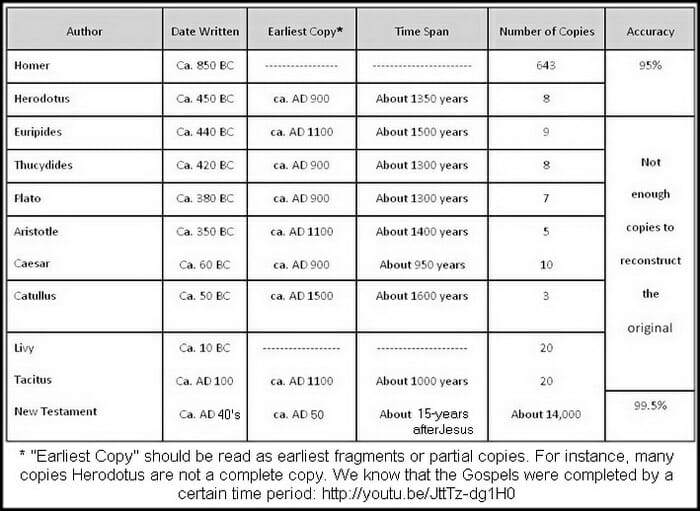The quick commentary on this swath of Scripture is this:
Concerning the non-virgin bride, there is an element of fraud here. A woman who admitted she was not a virgin was immune from prosecution; only one who pretended to be a virgin bride was subject to execution, and even then, only if her husband accused her. Furthermore, if any man seduced her prior to her betrothal, she needed only publicly confess this fact, and she could require him to marry her and never divorce her. If she was raped in the city, her cries for help would vindicate her. If she was raped in the field, she was presumed innocent and would be vindicated by her own words. Under those circumstances, it is quite reasonable that a woman who married under false claim of virginity was presumed to be guilty of adultery, that is, having sexual relations with someone other than her betrothed during her betrothal.
While this is a response to a particular “meme,” I will be bringing in previous discussions, posts, and ideas to build to a response that should be instructive in approaching other verses or challenges often given to the Christian as evidence that the Bible shows an “evil” God, and thus undermines the Christians reliance on the Bible.
If you want to just go to a refutation of the meme and skip the build-up, you can do so by CLICKING HERE. Otherwise, enjoy the tour through other challenges that end up being the opposite of the claims of the skeptics.
If a man encounters a young woman, a virgin who is not engaged, takes hold of her and rapes her, and they are discovered, the man who raped her must give the young woman’s father 50 silver shekels, and she must become his wife because he violated her. He cannot divorce her as long as he lives. (Deuteronomy 22:28-29)
- Intro To Topic
- Rules of Engagement
- Example One
- Example Two
- Comments On Examples
- Afterthought ~ Naturalism Cannot Define Something As “Moral”
- Question and Answer
- Backtracking A Bit
- Continuing
- A Real Question
- Context is King!
- Actually, A Compassionate Law
- Conclusion To Question One
- A 2nd Good Challenge
- Recommended Resources
- AFTER Discussion
INTRO
The meme [upper/right] was posted by my son to engender deeper conversation on his Facebook. I began to post a series of responses giving hints to ways to approach ancient documents. One must REMEMBER this as you read… I am not showing the divine nature of the Bible… I am merely pointing out the generally accepted rules of engagement when approaching ancient literature most legal systems in the West and literary critics accept as a guideline[s] to sift through documents [ancient or new]. These rules are not meant to prove the divine nature of anything. They are however meant to engender a level playing field (if-you-will) to help anyone approach weighty subjects, texts, and the like.
By using these “rules of engagement” we will find that the typical atheist/skeptic who refuses to mature in their approach to these issues use shallow thinking by promoting such “challenges,” so-called. The real purpose of such memes are merely to produce an emotional — visceral — reaction, emotive in nature, having nothing to do with good thinking in any way.
This approach, then, not only makes it easy for the believer to show the folly in such positions, BUT SHOULD make the skeptic pause and contemplate how they are making themselves look in a public place. They [the skeptic] should want to make their case full of gravitas, facts, context, and the like so they can garner a level of respect in their own positions. These memes do just the opposite. They make the skeptic look childish.
(As an aside, almost all of the graphics/pics inserted in my posts will be linked to similarly contextual article or posts.)
This is key:
Raising one’s self-consciousness [awareness] about worldviews is an essential part of intellectual maturity…. The right eyeglasses can put the world into clearer focus, and the correct worldview can function in much the same way. When someone looks at the world from the perspective of the wrong worldview, the world won’t make much sense to him. Or what he thinks makes sense will, in fact, be wrong in important respects. Putting on the right conceptual scheme, that is, viewing the world through the correct worldview, can have important repercussions for the rest of the person’s understanding of events and ideas…. Instead of thinking of Christianity as a collection of theological bits and pieces to be believed or debated, we should approach our faith as a conceptual system, as a total world-and-life view.
Ronald H. Nash, Worldviews in Conflict: Choosing Christianity in a World of Ideas (Grand Rapids, MI: Zondervan, 1992), 9, 17-18, 19.
Okay then, I will cut’n’paste much of the posts/discussion from my son’s Facebook below (with some editing/addition).
RULES OF ENGAGEMENT
This is one reason why people who say they are skeptics really are not all that skeptical… because they do not do the yeoman’s work to know how to accept or reject their own beliefs well nor those beliefs of whom they are challenging. It does a great disservice to themselves AS WELL as others… and really shows a disregard for a world religion that I have not seen shown to the other great religions of the world. Some even will defend these other Religions without knowing the religions own stated positions.
This is the first of a few points I will make.
This is an issue that has many depths to it. And when atheists or skeptics reject the Bible for such verses, they do a disservice to good thinking. And mind you, one of the most important aspects of this debate is how do we approach ancient texts in a fair way. FIRST and FOREMOST, the idea that the writers of the Bible were robotic in their transmission, called in occultism, “automatic writing,” is not what we see here – where the writer gives over control of himself to write [word-for-word] what is being relayed to him or her. Geisler so aptly words the issue this way:
The [biblical authors] who wrote Scripture were not automatons. They were more than recording secretaries. They wrote with full intent and consciousness in the normal exercise of their own literary styles and vocabularies. The personalities of the [biblical authors] were not violated by a supernatural intrusion. The Bible which they wrote is the Word of God, but it is also the words of men. God used their personalities to convey His propositions. The [biblical authors] were the immediate cause of what was written, but God was the ultimate cause.
(See references for this and Aristotle quote to follow, here)
So the idea that the Bible is a word-for-word dictum is NOT the case. The idea that the Bible is not something akin to “automatic writing” has no bearing on if this is the Divine Word of God however. Rather, the Christians concern should be to show the viable nature of the Bible in its internal context. There are techniques to help the truth seeker to do just that. In fact, our courts today incorporate some help in how they approach documents submitted as evidence, and literary-textual critics employ these Grecian helps that Aristotle and others formulated well.
The internal test utilizes one Aristotle’s dictums from his Poetics. He said,
They [the critics] start with some improbable presumption; and having so decreed it themselves, proceed to draw inferences, and censure the poet as though he had actually said whatever they happen to believe, if his statement conflicts with their notion of things…. Whenever a word seems to imply some contradiction, it is necessary to reflect how many ways there may be of understanding it in the passage in question…. So it is probably the mistake of the critics that has given rise to the Problem…. See whether he [the author] means the same thing, in the same relation, and in the same sense, before admitting that he has contradicted something he has said himself or what a man of sound sense assumes as true.
So are there rules that apply to approaching subjects in a fashion that maximizes the best conclusion on the text/topic that is the subject? Yes there is, this list is also from the Greeks and is summed up in these 8-points are summed up well in a short handout to a class I taught at church dealing with how believers should approach Scripture:
1) Rule of Definition: Define the term or words being considered and then adhere to the defined meanings.
2) Rule of Usage: Don’t add meaning to established words and terms. Ask what was the common usage in the culture at that time period.
3) Rule of Context: Avoid using words out of context. Context must define terms and how words are used.
4) Rule of Historical background: Don’t separate interpretation from historical investigation.
5) Rule of Logic: Be certain that words as interpreted agree with the overall premise.
6) Rule of Precedent: Use the known and commonly accepted meanings of words, not obscure meanings for which there is no precedent.
7) Rule of Unity: Even though many documents may be used there must be a general unity among them.
8) Rule of Inference: Base conclusions on what is already known and proven or can be reasonably implied from all known facts.
(These are more fully explained in the outline I wrote for that teaching here)
This is always helpful to the believer to fall back on when skeptics take a single Scripture out of context and uses it as an example of why they reject the Bible. (The same would be said if something was done in similar fashion to such works as Homer’s Iliad, Caesar’s Gallic Wars, a play from Shakespeare, or the like.) These people not only try to show the Bible in a certain light, but take a leap to say Scripture is not divine in how the Christian or Jew think it is. This is a leap that the text does not warrant. Again, the conclusion they make is not warranted by properly approaching the text… in other words they destroy any warrant they feel they have or have shown by sloppy thinking. By creating this “straw-man” they come to a conclusion that is really a non-sequitur, effectively making their position incoherent.
I will talk about two such texts in the next post.
EXAMPLE ONE
Over the years I have been challenged with many verses. While I have responded to this in the past, Dennis Prager’s critiques is hard to beat. This challenge has to do with Deuteronomy 21:18-21. The Scripture and argument go something like this:
“If any man has a stubborn and rebellious son who will not obey his father or his mother, and when they chastise him, he will not even listen to them, 19 then his father and mother shall seize him, and bring him out to the elders of his city at the gateway of his home town. 20 “And they shall say to the elders of his city, ‘This son of ours is stubborn and rebellious, he will not obey us, he is a glutton and a drunkard.’ 21 “Then all the men of his city shall stone him to death; so you shall remove the evil from your midst, and all Israel shall hear of it and fear,” (Deut. 21:18-21).
BEFORE getting to Prager’s rebuttal… let us deal with some qualifications one need to know and apply to a text in order to maximize a skeptical look at said text.
This seemingly harsh punishment for rebellion has been used by the critics of Christianity to infer the moral backwardness of Old Testament ethics. It is easy to throw stones from the comfort of our 21st-century perspective. If you apply our own understanding to this situation… then yes, I would agree with the skeptic. But this is not how thoughtful people approach ancient texts. For instance… there are many gaps from our 21st-Century post Judeo-Christian, Western culture that one should account for.
THE LANGUAGE GAP
✦ …Consider how confused a foreigner must be when he reads in a daily newspaper: “The prospectors made a strike yesterday up in the mountains.” “The union went on strike this morning.” “The batter made his third strike and was called out by the umpire.” “Strike up with the Star Spangled Banner.” “The fisherman got a good strike in the middle of the lake.” Presumably each of these completely different uses of the same word go back to the parent and have the same etymology. But complete confusion may result from misunderstanding how the speaker meant the word to be used…. We must engage in careful exegesis in order to find out what he meant in light of contemporary conditions and usage.
We speak English, but the Bible was written in Hebrew and Greek (and a few parts in Aramaic, which is similar to Hebrew). Therefore, we have a language gap; if we don’t bridge it, we won’t fully be able to understand the Bible.
THE CULTURE GAP
If we don’t understand the various cultures of the time in which the Bible was written, we’ll never comprehend its meaning. For example, if we did not know anything about the Jewish culture at the time of Christ, the Gospel of Matthew would be very difficult to grasp. Concepts such as the Sabbath, Jewish rituals, the temple ceremonies, and other customs of the Jews must be under¬stood within cultural context in order to gain the true meaning of the author’s ideas.
THE GEOGRAPHY GAP
A failure to be familiar with geography will hinder learning. For instance, in I Thessalonians 1:8 we read, “For from you sounded out the word of the Lord not only in Macedonia and Achaia, but also in every place your faith [toward] God is spread abroad.” What is so remarkable about this text is that the message traveled so quickly. In order to understand how, it is necessary to know the geography.
Paul had just been there, and when he wrote the letter, very little time had passed. Paul had been with them for a couple of weeks, but their testimony had already spread far. How could that happen so fast? If you study the geography of the area you’ll find that the Ignatian Highway runs right through the middle of Thessalonica. It was the main concourse between the East and the West, and whatever happened there was passed all the way down the line.
THE HISTORY GAP
Knowing the history behind a passage will enhance our comprehension of what was written. In the Gospel of John, the whole key to understanding the interplay between Pilate and Jesus is based on the knowledge of history.
When Pilate came into the land with his emperor worship, it literally infuriated the Jews and their priests. So he was off to a bad start from the very beginning. Then he tried to pull something on the Jews, and when they caught him, they reported him to Rome, and he almost lost his job. Pilate was afraid of the Jews, and that’s why he let Christ be crucified. Why was he afraid? Because he already had a rotten track record, and his job was on the line.
Consider something known as the psychology of testimony. This refers to the way witnesses of the same event recall it with a certain level of discrepancy, based on how they individually observe, process, store, and retrieve the memories of an event.
One person may recall an event in strict chronological order; another may testify according to the principle of the association of ideas. One person may remember events minutely and consecutively, while someone else omits, condenses, or expands. These factors must be considered in comparing eyewitness accounts, and this is why history expects a certain amount of variability in human testimony. For example, let’s say that twelve eyewitnesses observed the same event–a car accident. If those witnesses were called to testify in a court of law, what would the judge think if all twelve witnesses gave the same exact testimony of the event, with every detail being identical? Any good judge would immediately conclude they were in collusion and reject their accounts. The variations of the observations of the eyewitness testimonies actually add to the integrity of their recall.
These are just a few of the many examples one needs to seriously consider when approaching ANY ancient text – especially ancient religious texts.
GENRE (IN THE OLD TESTAMENT)
- Law is “God’s law,” they are the expressions of His sovereign will and character. The writings of Moses contain a lot of Law. God provided the Jews with many laws (619 or so). These laws defined the proper relationship with God to each others and the world (the alien)….
- History. Almost every OT book contains history. Some books of the Bible are grouped together and commonly referred to as the “History” (Joshua, Kings & Chronicles). These books tell us the history of the Jewish people from the time of the Judges through the Persian Empire…. In the NT, Acts contains some of the history of the early church, and the Gospels also have History as Jesus’ life is told as History….
- Wisdom Literature is focus on questions about the meaning of life (Job, Ecclesiastes), practical living, and common sense (Proverbs and some Psalms )….
- Poetry is found mostly in the Old Testament and is similar to modern poetry. Since it is a different language, “Hebrew,” the Bible’s poetry can be very different, because it does not translate into English very well….
- Prophecy is the type of literature that is often associated with predicting the future; however, it is also God’s words of “get with it” or else. Thus Prophecy also exposes sin and calls for repentance and obedience. It shows how God’s law can be applied to specific problems and situations, such as the repeated warnings to the Jews before their captivity….
- Apocalyptic Writing is a more specific form of prophecy. Apocalyptic writing is a type of literature that warns us of future events which, full meaning, is hidden to us for the time being….
(Source)
Approaching portions of Scripture (or ANY ancient text) knowing even the genre is helpful to dissect it well.
DENNIS PRAGER exemplifies how to approach Deuteronomy 21:18-21 by explaining much of what we have talked about already plus more:
Moving on…
EXAMPLE TWO
In an ongoing discussion at an atheist’s website, I was challenged with how evil God is to kill children with a Bear (2 Kings 2:23-25). I mean children? Here we have proof that God killed innocent children. Or so a light reading would express as much.
This is a post I can truly pat-myself-on-the-back for… because I offered a twist on this that other apologists have not. Let me explain after this verse is read:
He went up from there to Bethel, and while he was going up on the way, some small boys came out of the city and jeered at him, saying, “Go up, you baldhead! Go up, you baldhead!” And he turned around, and when he saw them, he cursed them in the name of the LORD. And two she-bears came out of the woods and tore forty-two of the boys. From there he went on to Mount Carmel, and from there he returned to Samaria. (2 Kings 2:23-25)
It looks like we are seeing God killing kids for essentially – and just as cutely – as a young child gets frustrated and calls a friend “poopy head.”
However, if you come at this ancient text taking the Grecian examples of the credibility afforded a text, and step out of our 21st-Century post Judeo-Christian “Western” culture and ask if there are gaps in our knowledge (historical time periods, who was this written to, who wrote it, does understanding geography help us in understanding this tough verse, does understanding the culture of the writer help [how are the two cultures different], are there hint in the Hebrew that will help us as well, etc) Using this we can ask like any CSI detective: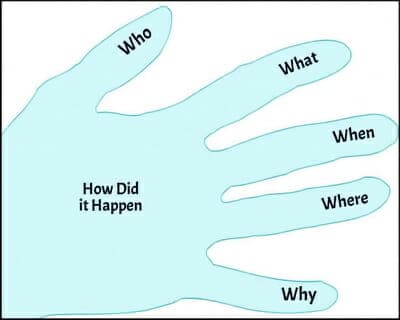
- Who;
- What;
- When;
- Where;
- Why;
- And How It Happened.
…as well as does the text…
- Emphasize something;
- Does it repeat a theme in the larger text;
- Is it related or unrelated;
- Is it alike or similar to other portions of the text or cultures in the area;
- Is it true to our modern life in some way.
By doing so we can find out that: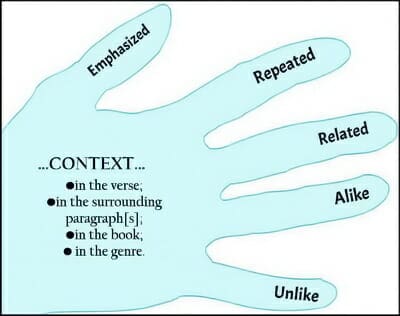
✔ The crowd was in their late teens to early twenties (NOT CHILDREN, but military age, and this is known from other parts of the Bible where the Hebrew is used AS WELL AS from other ancient documents and cultures in the area of the Middle-East);
✔ they were antisemitic (this is known from most of the previous passages and books as well – also historical anthropology and other ancient texts);
✔ they were from a violently cultic city (ditto);
✔ the crowd was large (large enough to do the following….
(Here is my “pat-on-the-back” coming up)
✔ this large crowd had already turned violent and riotess.
I can say this because as the pictures of cultural customs from this time-period [key!] show on my in-depth response to this by using drawings of historical figures from Israels history: priests, prophets, spiritual leaders, and even Flavius Josephus.
What did you notice above in the cover to an A&E documentary to the right? Yup, a turban as well as a cloak which covers the heads of the priests and prophets. Take note of the below as well.





I will post continue with a snippet from the aforementioned post:
I posted multiple images to drive a point home in our mind. The prophet Elisha would have had a couple cultural accoutrements that changes this story from simple name calling to an assault. He wouldn’t have been alone either, in other words, he would have had some people attached to him that would lay down their lives to protect him. And secondly, he would have had a head covering on, especially since he was returning from a “priestly” intervention. So we know from cultural history the following:
- He would have had a head dressing on — some sort of turbin; and he would have had an entourage of men to dissuade any attack or mistreatment of a priest of Israel on a journey.
One last point before we bullet point the complete idea behind the Holy and Rightful judgement from the Judge of all mankind. There were 42 persons killed by two bears. Obviously this would require many more than 42 people. Why? What happens when you have a group of ten people and a bear comes crashing out of the bushes in preparation to attack? Every one will immediately scatter! In the debate I pointed out that freezing 42 people and allowing the bears time to go down the line to kill each one would be even more of a miracle than this skeptic would want to allow. So the common sense position would require a large crowd and some sort of terrain to cut off escape. So the crowd would probably have been at least a few hundred.
Also, this holy man of God was coming back from a “mission,” he would have had an entourage with him ~ as already mentioned, as well as having some sort of head-covering on as pictured above ~ as already mentioned.
QUESTION: ANSWER:
So, what do these cultural and historical points cause us to rightly assume?
That the crowd could not see that the prophet was bald.
Which means they would have had to of gotten physical — forcefully removing the head covering. Which means also that the men with the prophet Elisha would have also been overpowered. So lets bullet point the points that undermine the skeptics viewpoint.
✔ The crowd was in their late teens to early twenties;
✔ they were antisemitic (this is known from most of the previous passages and books);
✔ they were from a violently cultic city;
✔ the crowd was large;
✔ the crowd had already turned violent.
These points caused God in his foreknowledge to protect the prophet and send in nature to disperse the crowd. Nature is not kind, and the death of these men were done by a just Judge. This explains the actions of a just God better than many of the references I read.
Your welcome.
COMMENT AFTER THE TWO EXAMPLES
So when I see something like this meme… it is just that. A very badly “exegeted” point. VERY RARELY do I meet a skeptic that does the yeoman’s work of heavy lifting and making a case well enough that they explain their disbelief in a manner that would demand a decision by other’s by engendering an informed dialogue. But this is why Trump — pivoting here to make a point — does so well among conservative because rather than pausing to see if their emotional response is rooted in more that a rejection based on “no-knowledge” and driven by reactive feeling to the opposing political party.
This is how Obama was elected as well.
Skpetics and liberal leaning persons deride the religious or conservative folks for being shallow and not thinking well, but in fact these rejections of BIG IDEAS and ancient text are done by doing just that — low information positions. which is why I ask people to pause and to think more deeply on their own positions. To learn their position better as well as to know better without making straw-men type arguments the position they are rejecting. In-other-words, Know what you reject, and why you reject it.
AGAIN, bringing this to current examples in our political lives, and repeating myself in a way:
Very rarely do you find someone who is an honest enough skeptic that after watching the above 3 short videos asks questions like: “Okay, since my suggestion was obviously false, what would be the driving presuppositions/biases behind such a production?” “What are my driving biases/presuppositions that caused me to grab onto such false positions?” You see, few people take the time and do the hard work to compare and contrast ideas and facts. A good example of this is taken from years of discussing various topics with persons of opposing views, I often ask if they have taken the time to “compare and contrast.” Here is my example:
I own and have watched (some of the below are shown in high-school classes):
- Bowling for Columbine
- Roger and Me
- Fahrenheit 9/11
- Wal-Mart: The High Cost of Low Price
- Sicko
- An Inconvenient Truth
- Loose Change
- Zeitgeist
- Religulouse
- The God Who Wasn’t There
- Super-Size Me
But rarely [really never] do I meet someone of the opposite persuasion from me that have watched any of the following (I own and have watched):
- Celsius41.11: The Temperature at Which the Brain Dies
- FahrenHYPE 9/11
- Michael & Me
- Michael Moore Hates America
- Bullshit! Fifth Season… Read More (where they tear apart the Wal-Mart documentary)
- Indoctrinate U
- Mine Your Own Business
- Screw Loose Change
- 3-part response to Zeitgeist
- Fat-Head
- Privileged Planet
- Unlocking the Mystery of Life
AFTERTHOUGHT
Just as an afterthought. A skeptic who rejects God and accepts naturalism cannot say rape is wrong like the theist can say this:
RAPE:
- theism: evil, wrong at all times and places in the universe — absolutely;
- atheism: taboo, it was used in our species in the past for the survival of the fittest, and is thus a vestige of evolutionary progress… and so may once again become a tool for survival — it is in every corner of nature;
- pantheism: illusion, all morals and ethical actions and positions are actually an illusion (Hinduism – maya; Buddhism – sunyata). In order to reach some state of Nirvana one must retract from this world in their thinking on moral matters, such as love and hate, good and bad. Not only that, but often times the person being raped has built up bad karma and thus is the main driver for his or her state of affairs (thus, in one sense it is “right” that rape happens).
An example from an “evangelical” atheist:
★ Richard Dawkins: My value judgement itself could come from my evolutionary past.
★ Justin Brierley: So therefore it’s just as random in a sense as any product of evolution.
★ Richard Dawkins: You could say that, it doesn’t in any case, nothing about it makes it more probable that there is anything supernatural.
★ Justin Brierley: Ultimately, your belief that rape is wrong is as arbitrary as the fact that we’ve evolved five fingers rather than six.
★ Richard Dawkins: You could say that, yeah.
In other words they have to BORROW FROM ethics the worldview that they are trying to disprove.
For more on this, see my post noting many more atheist/evolutionary (philosophical naturalism) positions followed to their logical conclusions here:
QUESTION REGARDING THE ORIGINAL MEME
Here are some questions from a person trying to figure out what I have been getting at. At first they seem like “snarky” comments, but end up in a good honest question.
S.C. said:
So when you say rape was “okay then and not now”, you mean that it was ok according to the people, or according to God? (Or both?)
I say this is snarky because the questioner either was not aware (or on purpose) formulated the question which would only allow for a response that “damned” the responder.
In a very neat book meant to dumb down big ideas in logic, we read the following example that will surely persuade the reader who dislike “Dubya’s” rhetoric:
A false dilemma is an argument that presents a limited set of two possible categories and assumes that everything in the scope of the discussion must be an element of that set. Thus, by rejecting one category, you are forced to accept the other. For example, “In the war on fanaticism, there are no sidelines; you are either with us or with the fanatics.” In reality, there is a third option, one could very well be neutral; and a fourth option, one may be against both; and even a fifth option, one may empathize with elements of both.
Ali Almossawi, An Illustrated Book of Bad Arguments: Learn the Lost Art of Making Sense (New York, NY: The Experiment, 2013), 16.
To backtrack just a bit, I am sure S.C. missed the previous two point response to the meme specifically in the original post on Facebook. So I will post these here for clarity and then pick back up with the convo
Back Tracking
I linked to a post on Dr. William Lane Craig’s Reasonable Faith site explaining some of the issues. Here is an excerpt of the challenge… followed by an excerpt of the response:
…you believe that the Bible is the revealed word of God, as you seem to regarding the existence of Jesus of Nazareth, then how do you find child rape so abhorrent when there is nothing in the Bible condemning it? Indeed, Deuteronomy 22:28-29 NLT says that if a woman (regardless of age) is raped, the rapist must pay her father 50 silvers and marry the woman, which hardly seems a punishment to the rapist. This, of course, excludes engaged women, for whom the punishment for being raped is death if they don’t cry for help (Deuteronomy 22:23-24 NAB). The only instance in which it is only the rapist who is punished is if the victim is engaged (possible but not likely if they are a child), and they cry for help (again, a child would very likely be intimidated into not calling for help, and therefore, by Biblical law, be killed)….
Dr. Craig responds in full, but here is the point I wish to zero in on:
Moral Argument – The Old Testament as a sufficient framework for morality
But do your examples even do that? The immorality of rape is immediately given in the seventh of the Ten Commandments “You shall not commit adultery.” Any sexual intercourse outside the bounds of marriage is proscribed by the Bible. So rape is always regarded as immoral in the Bible. That puts a quite different perspective on things. What your complaint really is is that the penalties for rape in the passages you cite seem unduly lenient. You think that the criminal laws against rape needed to be even stronger than they were in ancient Israel. Well, maybe you’re right. What does that prove? There’s no claim that Israel’s laws were perfect or adequately expressed God’s moral will. Jesus himself regarded the Mosaic law on divorce as inadequate and failing to capture God’s ideal will for marriage ( Matthew 5.31-2 ). Maybe the same was true for rape laws. Israel’s criminal statutes were not timeless truths for all societies but were intended for Israel at a certain specific time in its history. Moreover, these statutes are examples of case law: if such-and-such happens, then do so-and-so. These were idealizations which served as guides and might admit all sorts of exceptions and mitigating circumstances (like a child’s being afraid to cry for help).
In any case, Spencer, how much effort have you really made to understand these laws in the cultural context of the ancient Near East? None at all, I suspect; you probably got these passages from some free-thought publication or website and repeat them here with little attempt to understand them. By contrast, Paul Copan in his Is God a Moral Monster? (Baker: 2010) deals with these passages in their historical context, thereby shedding light on their meaning (pp. 118-119). Copan observes that there are three cases considered here:
1. Consensual sex between a man and a woman who is engaged to another man, which was a violation of marriage ( Deuteronomy 22.23 ). Both parties were to be executed.
2. Rape of a woman who is engaged to another man ( Deuteronomy 22.25 ). Only the rapist is executed; the woman is an innocent victim.
3. Seduction of a young woman who is not engaged to another man Deuteronomy 22.28 ; cf . Exodus 22.16-17 ). The seducer is obliged to marry the young woman and provide for her, if she will have him; otherwise her father may refuse him and demand payment of the usual bridal gift (rather like a dowry) anyway.
In short, rape was a capital crime in ancient Israel. As for Leviticus 20.13 , this verse prescribes the death penalty for consensual sexual intercourse between two men; that you interpret this passage to condemn a child who is assaulted by a pedophile only shows how tendentious your exegesis is.
If anything, then, the Bible is far stricter in its laws concerning sexual behavior than we are today. So even though appeal to the Bible is no part of my argument for (2), what the Bible teaches about the immorality of rape is right in line with my claim that objective moral values and duties exist.
Another good — short — response is this “cool as Colt 45” response to the same topic incorporating the language and context used in these verses:
So the main challenge is dealt with quite handily herein. However, continued discussion will always ad to the understanding of such a tough topic.
…Continuing…
Remember I am still responding to S.C.’s challenge that was a false dilemma, but try to steer the convo to what I know he means. Keep in mind, things do not fall into place easily, so repeating the same thing multiple times ~ just differently or with additional information ~ will often times make a subject click with an individual. I am hoping this will be the case here.
I respond:
Again, “rape” is not part of that verse. The Bible was the first book to legally codify for an entire culture the punishment of the rapist.
…Let’s compare this with ANE law. Copan writes,
Middle Assyrian laws punished not a rapist but a rapist’s wife and even allowed her to be gang-raped. In other ancient Near Eastern laws, men could freely whip their wives, pull out their hair, mutilate their ears, or strike them –a dramatic contrast to Israel’s laws, which gave no such permission.
The previously posted link to a video uploaded to my YouTube of parents being able to kill their children for disobedience is another oft misquoted verse to make a point without any depth of real understanding 12-minutes long):
You see, these verses do the exact opposite of what the meme says they do. The meme says they support rape… in their full context they are protecting the woman from rape by making death the punishment for the rapist.
AGAIN, for CLARITY purposes:
In Deuteronomy 22:28-29 is appears as if a rape victim is to marry the rapist, the verse is as follows:
- “If a man meets a virgin who is not betrothed, and seizes her and lies with her, and they are found, then the man who lay with her shall give to the father of the young woman fifty shekels of silver, and she shall be his wife, because he has violated her. He may not divorce her all his days.”
This issue is, however, addressed in another verse from Exodus in the laws of social justice:
- “If a man seduces a virgin who is not betrothed and lies with her, he shall give the bride-price for her and make her his wife. If her father utterly refuses to give her to him, he shall pay money equal to the bride-price for virgins.” (Exodus 22:16–17)
Copan explains that “In each case, the man is guilty. However, the critics’ argument focuses on verses 28–29: the rape victim is being treated like she is her father’s property. She’s been violated, and the rapist gets off by paying a bridal fee. No concern is shown for the girl at all”.
He goes on to say that “The girl’s father (the legal point person) has the right to refuse any such permanent arrangement as well as the right to demand the payment that would be given for a bride, even though the seducer doesn’t marry his daughter (since she has been sexually compromised, marriage to another man would be difficult if not impossible). The girl has to agree with this arrangement, and she isn’t required to marry the seducer. In this arrangement, she is still treated as a virgin”.
So, rather than undermining women this law instead emphasizes their protection…
[….]
…So, I don’t think that these verses are condoning rape. Instead these laws were in place to protect the vulnerable, such as women, should undesirable circumstances arise. No, the Bible nor God condones rape.
REAL QUESTION
S.C. is now understanding a bit more about the context, culture, language, the intended audience, the author, etc. I say this because even if he does not admit it, when you start to ask good questions it means you are becoming invested and interested in an outcome. The real challenge is to get beyond one’s presuppositions and reach a conclusion that may be as minimal as this, “wow, maybe I was wrong in coming at this topic in the past… what can I do to better treat the subject as well as respecting others beliefs.”
Respecting others can often times be respecting friends or family.
So here is the question from S.C.
Some of the answer is already dealt with in detail above. We are incorporating many of the points from the “8-Rules,” Aristotles dictum, Israels cultural mores in a lawless time period as well as the surrounding nations cultural mores. In fact we have used in this post many of the points discussed.
CONTEXT
One we will focus on here is Context:
3) Rule of Context: Avoid using words out of context. Context must define terms and how words are used.
- Many a passage of Scripture will not be understood at all without the help afforded by the context; for many a sentence derives all its point and force from the connection in which it stands. (Biblical Hermeneutics, Terry. M. S.. p. 117. 1896.)
- [Bible words] must be understood according to the requirements of the context. (Thayer’s Greek?English Lexicon of the New Testament, p. 97.)
- Every word you read must be understood in the light of the words that come before and after it. (How to Make Sense, Flesch, Rudolph, p. 51, Harper & Brothers. 1959.)
- [Bible words] when used out of context… can prove almost anything. [Some interpreters] twist them… from a natural to a non?natural sense. (Irenaeus, second?century church father, quoted in Inspiration and Interpretation, p. 50, Eerdmans Pub. Co., 1957.)
- The meaning must be gathered from the context. (Encyclopedia Britannica, Interpretation of Documents. V. 8, p. 912. 1959.)
A good rule of thumb in life is to remember that Context is King.
So using the language and context of the text in question, remembering these key points (pic to the right), we begin to have the tools to answer the issue ourselves by investigating the language, context of the book itself, history, and the like. Here, Apologetics Press has done precisely that (also noted in what I called the “smooth as Colt 45” video):
…The truth is, however, the Hebrew word in this case translated “seizes” (tapas [see more below on this]) can mean many things. Here are some examples of the way it is translated in Deuteronomy 22:28 in several different English translations:
- “lay hold on her” (ASV)
- “taking her” (DRA)
- “and takes her” (NLV/NAB)
- “and hath caught her” (YLT).
By looking at other passages that use the word, we can see that the word tapas sometimes has nothing to do with force, and therefore nothing to do with rape. As Greg Bahnsen has written:
The Hebrew word tapas (“lay hold of her,” emphasized above) simply means to take hold of something, grasp it in hand, and (by application) to capture or seize something. It is the verb used for “handling” the harp and flute (Gen. 4:21), the sword (Ezek. 21:11; 30:21), the sickle (Jer. 50:16), the shield (Jer. 46:9), the oars (Ezek. 27:29), and the bow (Amos 2:15). It is likewise used for “taking” God’s name (Prov. 30:9) or “dealing” with the law of God (Jer. 2:8). Joseph’s garment was “grasped” (Gen. 39:12; cf. 1 Kings 11:30), even as Moses “took” the two tablets of the law (Deut. 9:17)… [T]he Hebrew verb “to handle, grasp, capture” does not in itself indicate anything about the use of force (italics in orig.).
In truth, we use English words in this way on a regular basis. For instance, a brief look at the English word “take” illustrates the point. You can take someone’s cookie, or take a person’s wife, or take a bride to be your wife. The idea of force is not inherent in the word at all. If you take a person in your arms, what have you done? Or if a young man takes a young woman to be his wife, is there force involved? No. Also, think about the English word “hold.” You can take hold of something in a number of ways. We often say that a woman will holdthe child in her arms, or a bridegroom takes a bride to “have and to hold.” The Hebrew wordtapas is acting in exactly the same way as the English words “hold” and “take” are.
In addition, it is clearly evident from the immediate context of Deuteronomy 22 that rape is not being discussed in verses 28-29. We know that for two primary reasons. First, verses 25-27 give a clear instance in which rape is being discussed. In that case, a man raped a woman, she “cried out” (v. 27), but she was in the country and no one was there to help her. The text says that the man who committed the crime “shall die” (v. 25), but the Israelites were supposed to “do nothing to the young woman” since “there is in the young woman no sin worthy of death” (v. 26). It is of great interest that in this clear case of rape, the text uses a completely different word. The word translated “forces her” in verse 25 is the Hebrew word chazaq and yet in verse 28, the verb has been intentionally changed to tapas (see Shamoun, 2015). Second, the natural reading of verses 28-29 makes it evident that both parties are guilty of at least some of the blame. Notice that at the end of verse 28 the text says, “and they are found out.” When the passage discusses the obvious case of rape, the text specifically only mentions the man in verse 25 when it says “then only the man who lay with her,” and conspicuously leaves out any indication of “they” being involved in the sin. Dr. Bahsen compares Deuteronomy 22:28-29 to Exodus 22:16, which reads, “If a man entices a virgin who is not betrothed, and lies with her, he shall surely pay the bride-price for her to be his wife” (1992). Notice that in this verse in Exodus, there is no force and both parties shoulder some of the guilt.
The practical value of God’s instruction in Deuteronomy 22:28-29 is easy to see. A man has sexual intercourse with a young woman who is not betrothed to anyone. There is no force involved, and it is not rape. But their action has been discovered. Now, who in the land of Israel wanted to marry a young girl who has not kept herself pure? The man cannot walk away from his sin. He has put the young woman in a very difficult life situation, in which there would be few (or no) other men who would want to marry her. Since it was often the case that women had an extremely difficult time financially without the help of a husband, this would be even more devastating to the young woman. God holds both the parties accountable, instructing them to get married and stay together, both suffer the shame, and work through the difficulties that they have brought on themselves. Nothing could be more moral, loving, and wise than these instructions. Once again, the skeptical charge against God’s love is without foundation.
MOST COMPASSIONATE LAW
Just to repeat an important note:
Again, “Nothing could be more moral, loving, and wise than these instructions in that area and culture.” Why? Because it, for the first time in the ancient world, stripped the power of choice away from men and allowed for choice in the woman’s decision. Sexual abuse, including rape, are prohibited in Scripture. In a Blaze article addressing modern myths regarding the Bible and various sexual behaviors, Rabbi Aryeh Spero and Rabbi Moshe Averick (and others) bring clarity to the argument that the Bible requires a woman to marry her rapist:
Averick addressed Deuteronomy — the book that is most targeted by biblical critics.
“The ‘rape’ that is talked about in Dvarim (Deuteronomy), is obviously not criminal rape; it is talking about a case where a relationship between a young man and woman got out of hand,” he said. “Sexual relationships in a Torah society are strictly forbidden before marriage — dating is only for purposes of marriage in the Orthodox community.”
Averick also pointed out that in Jewish law, women cannot be forced to marry against her will. If a man does not fulfill his duties as a husband, the woman is “entitled to initiate divorce proceedings.” The “rapist,” or fornicator, is not allowed to initiate such proceedings but is obligated to fulfill spousal duties.
This requirement that a “rapist” marry the violated woman, Bock noted, was enacted in order to protect the woman whom he defiled with his sexual advances.
“His act has rendered her unacceptable as a wife for others,” he explained. “So this law was designed to indicate responsibility in the sex act for the person in a patriarchal context where women had little power and where the women if left to the event would be on her own.”
Nettelhorst acknowledged that in a modern context, the situation mentioned in Deuteronomy “sounds awful,” and it was not ideal at the time it occurred either, but the idea was to, again, protect the woman and discourage sexual immorality. By marrying her, the “rapist” was accepting the consequences of his actions, paying her father a restitution and taking on the responsibilities of a husband to provide protection and security.
Spero added that a rape victim could “opt out” of marrying her rapist if she so desired, for, “if not, men could forcibly bring to altar any single woman he desired simply by raping her.”
CONCLUSION TO FIRST QUESTION
BTW, the penalty was 10-years wages, AND marriage to provide for and feed, house, and raise children with this wife… IF SHE SO DESIRED! Which often times she did, considering that the “rape” spoken of here isn’t violent but a more consensual fling. And considering the importance placed on virginity in that time period. One author notes:
…it could be viewed as merciful to the woman, who, because of the rape, would be considered unmarriageable. In that culture, a woman without a husband would have a very difficult time providing for herself. Unmarried women often had no choice but to sell themselves into slavery or prostitution just to survive.
[….]
That punishment consisted of two parts: he must pay the woman’s father fifty shekels of silver and he must marry and support the woman for the rest of her life. Fifty shekels of silver was a very substantial fine as at that time a shekel was a measurement of weight and not an actual coin. Some scholars believe it could have represented as much as 10 years of wages for the average person. The fact that a man was in any way punished for rape was revolutionary for that period of time in history. No other ancient legal system punished rape to anywhere near the degree outlined in Deuteronomy 22:22-29. While it is unrealistic to say that because of this command rape never occurred, hopefully the severity of the punishment was a strong deterrent to the exceedingly evil act of rape. …
That should explain WELL the verse [verses] used out of context to engender emotive responses based in just that, feelings.
NOT TO MENTION that no where in Israels ancient writings, rabbinical tradition and writings [etc.], did the position taken in the meme ever get recorded historically. Showing that how the people of the time understood exactly what was meant by this codified law. This is another clue to show the skeptics grasping at straws to build a straw-man position and attack it.
ANOTHER POINT MADE BY S.C.
I understand that the earlier verses in the chapter are referring to consensual sex, but to me passage 28 specifically cannot be about consensual relations when it uses the term “seize” (or “lay hold”, depending on which translation you are using). A Strongs concordance search of this shows that this term was used to show the taking of something, or someone, without consent, in multiple passages throughout the Bible.
I respond as well as a person in an apologetics group I am a part of (thanks to Z.E. Kendall for his insight… I was on the same track with …USE SKILLFULLY)
No, you have it backwards… the earlier verses talk about rape, the later talks about a more consensual relation.
✦ A primitive root; TWOT 2538; GK 9530; 65 occurrences; AV translates as “take” 27 times, “taken” 12 times, “handle” eight times, “hold” eight times, “catch” four times, “surprised” twice, and translated miscellaneously four times. 1 to catch, handle, lay hold, take hold of, seize, wield. 1a (Qal). 1a1 to lay hold of, seize, arrest, catch. 1a2 to grasp (in order to) wield, wield, use skillfully. 1b (Niphal) to be seized, be arrested, be caught, be taken, captured. 1c (Piel) to catch, grasp (with the hands). ~ James Strong, Enhanced Strong’s Lexicon (Woodside Bible Fellowship, 1995).
“Taphas” is the Hebrew word for “Lay hold on her”, and it can mean “to catch, handle, lay hold, take hold of, seize, wield, USE SKILLFULLY…”. It doesn’t necessitate a wrongful handling, or laying hold of. This verse concerns seduction, not rape. In no way is rape condoned in any part of the Bible, a simple reading of the larger context of Deuteronomy 22:25-29 easily confirms this. Notice that verse 25 gives the Law regarding rape, but uses an entirely different word than that in verses 28-29. The word used in vs 25 is chazaq- “to force”. In the other stories of the Bible that recount rape, none of them use the expression “taphas Shekahb” as in the Deuteronomy 22:28-29 passage.
(via Scripture Under Fire)
Here is Kendall’s addition:
…As for Deut. 22:28-29, interesting other uses closer to the meaning of Hebrew 8610 in the passage are likely such that the man in the passage “plays her like a harp,” as it were, or “uses her like the bow.” (Genesis 4:21 and Amos 2:15). So yeah, I’d say that enticement or the like is in view there.
The passage is connected with the immediately preceding passage, of course not through the concept of rape but rather, through the concept of outcomes that the parents/father wouldn’t desire.
Good stuff Maynard. And remember the context of the verses leading up to 28-29 dictate this is a woman deceived by a man’s promises, played like a harp. The primitive root meaning of the word means “to manipulate.”
Answering Islam has a good two paragraph section out of their larger post on the topic of rape:
The Hebrew word tapas (“lay hold of her,” emphasized above) simply means to take hold of something, grasp it in hand, and (by application) to capture or seize something. It is the verb used for “handling” the harp and flute (Gen. 4:21), the sword (Ezek. 21:11; 30:21), the sickle (Jer. 50:16), the shield (Jer. 46:9), the oars (Ezek. 27:29), and the bow (Amos 2:15). It is likewise used for “taking” God’s name (Prov. 30:9) or “dealing” with the law of God (Jer. 2:8). Joseph’s garment was “grasped” (Gen. 39:12; cf. I Kings 11:30), even as Moses “took” the two tablets of the law (Deut. 9:17). People are “caught” (I Kings 20:18), even as cities are “captured” (Deut. 20:19; Isa. 36:1). An adulterous wife may not have been “caught” in the act (Num. 5:13). In all of these instances it is clear that, while force may come into the picture from further description, the Hebrew verb “to handle, grasp, capture” does not in itself indicate anything about the use of force.
This verb used in Deuteronomy 22:28 is different from the verb used in verse 25 (chazak, from the root meaning “to be strong, firm”) which can mean “to seize” a bear and kill it (I Sam. 17:35; cf. 2 Sam. 2:16; Zech. 14:13), “to prevail” (2 Sam. 24:4; Dan. 11:7), “to be strong” (Deut. 31:6; 2 Sam. 2:7), etc. Deuteronomy 22:25 thus speaks of a man finding a woman and “forcing her.” Just three verses later (Deut. 25:28), the verb is changed to simply “take hold of” her – indicating an action less intense and violent than the action dealt with in verse 25 (viz., rape).
RECOMMENDED RESOURCES
- A must read book is, Is God a Moral Monster?: Making Sense of the Old Testament God
- An excellent book that helped even myself a great deal is this book, Misreading Scripture with Western Eyes: Removing Cultural Blinders to Better Understand the Bible.
- A good multi-paged article is here, What about Rape?
- And another great article is by M and M, Does the Bible Teach that a Rape Victim has to Marry her Rapist?
- Another article by them is a good one as well, Is God a Moral Monster? A Review of Paul Copan’s Book
AFTER Discussion
My son asked Sari (the woman I am talking to in this post) to continue on with the conversation to its conclusion, to which I pointed the following out to my son for clarity:
It’s simple Dominic, when I bump into someone in Starbucks and they ask me about this verse, I open up my Bible and find these notes (my Bible is to the right || right click on image and choose “open link in new tab” to fully enlarge). When Sari is at Starbucks and pulls out her Bible [insert laugh track] when someone asks about this verse, she has these notes (hers is to the left || right click on image and choose “open link in new tab” to fully enlarge):
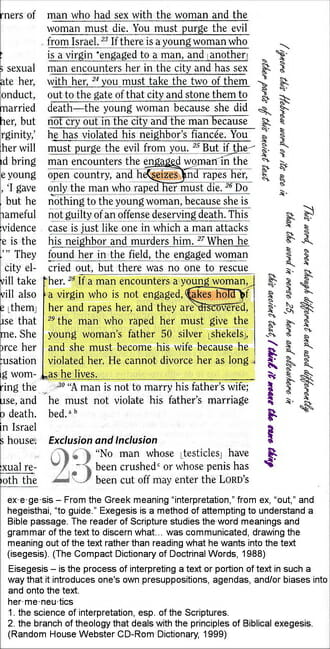 |
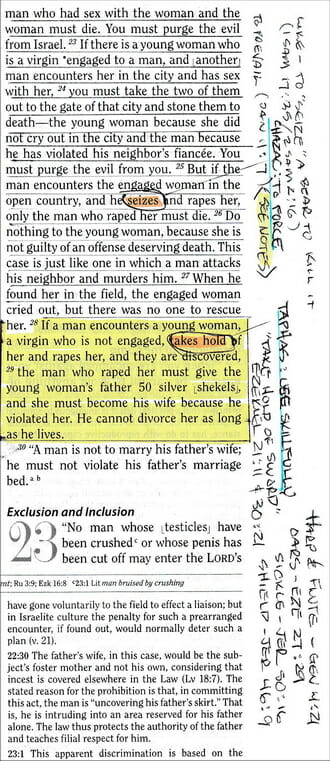 |
Romans 8:7 simply states: “For the mind-set of the flesh is hostile to God because it does not submit itself to God’s law, for it is unable to do so.” (see some commentary below). I can only give so many “helps” to apply to a proper hermeneutic:
- original language,
- Aristotle’s Dictum,
- Greek rules of interpretation (which the courts in Western culture use),
- other verses (the Bible interpret’s the Bible ~ Aristotle’s Dictum),
- cultural and historical keys to the Hebraic culture,
- as well as the others surrounding Israel… etc.
J.C. Ryle said in “Fire! Fire!,” this,
“Beware of manufacturing a god of your own: a god who is all mercy but not just, a god who is all love but not holy, a god who has a heaven for everybody but a hell for none, a god who can allow good and bad to be side by side in time, but will make no distinction between good and bad in eternity. Such a god is an idol of your own, as truly an idol as any snake or crocodile in an Egyptian temple. The hands of your own fancy and sentimentality have made him. He is not the God of the Bible, and beside the God of the Bible, there is no God at all. Beware of making selections from your Bible to suit your taste. Dare not to say, ‘I believe this verse, for I like it. I refuse that, for I cannot reconcile it with my views.’ Nay! But O man, who art thou that repliest against God? By what right do you talk in this way? Surely it were better to say over EVERY chapter in the word, ‘Speak Lord, for thy servant heareth.’ Ah! If men would do this, they would never deny the unquenchable fire.”
To use the laws of logic and reason, to rightfully divide the Word (2 Tim 2:15), to apply laws in the universe discovered by the Greeks — like Newton discovered the law of gravity, it had always been there, it was merely codified.
- Men do not make laws. They do but discover them. Laws must be justified by something more than the will of the majority. They must rest on the eternal foundation of righteousness. ~ Calvin Coolidge
All this [and more] in application to the faith in the construct of the Christian-theistic worldview is something non-regenerate men and women have deep lasting trouble with. For they cannot even see [again, even see] the Kingdom of Heaven (John 3:3)… because regeneration brings a new sight, a new awakening to the soul (1 John 2:29; John 3:6; James 1:18). In other words, Sari HAS fleshed (pun intended) it out to its logical conclusion (Psalm 146:8; Luke 24:31), that is, blindness, rebellion, in the sight of something so evident (2 Corinthians 3:16; 2 Kings 6:17).
It is like saying “look at that ‘fast’ car,” contrasted with “look at that ‘slow’ car.” The car stays the same… the word preceding it defines it’s context… and in our culture it could denote a Pinto [a junker piece of shite!] or a Marzoratti [an expensive sports car].
You see, sexual assault [rape] stayed the same — because the culture looked on sexual purity as important. But the word preceding it defines it’s context — AS WELL AS the actions taken after the context is spoken. So the assault stays the same… the modifier denotes a willingness of a non-willingness in the action (AS WELL as the punishment following such an action ~ death penalty or a “shotgun wedding”).
A shotgun wedding is a wedding that is arranged to avoid embarrassment due to an unplanned pregnancy, rather than out of the desire of the participants. The phrase is an American colloquialism, though it is also used in other parts of the world, based on a supposed scenario (usually hyperbole) that the father of the pregnant daughter, almost by accepted custom, must resort to using coercion (such as threatening with a shotgun) to ensure that the man who impregnated her follows through with the wedding.
The use of duress or violent coercion to marry is no longer common in the U.S., although many anecdotal stories and folk songs record instances of such coercion in 18th- and 19th-century America. Often a couple will arrange a shotgun wedding without explicit outside encouragement, and some religious teachings consider it a moral imperative to marry in that situation.
One purpose of such a wedding can be to get recourse from the man for the act of impregnation; another reason is to ensure that the child is raised by both parents. In some cases, as in early America and in the Middle East, a major objective was the restoring of social honor to the mother.…
(WIKI ~ emphasis added)
This is why leftists can say 1-out-of-4 women are sexually assaulted on college campuses… who would want to send their daughter to such a place like higher education. It isn’t until we see that they define an “unwanted kiss” and “rape” as sexual assault (and everything in-between).
The same idea is applied to these verses ~ Ergo, CONTEXT IS KING!
- This verse reveals how hopelessly incorrigible and utterly destitute the flesh really is. It is a spiritual anarchist. This demolishes any theory that there is a divine spark in man and that somehow he has a secret bent toward God. The truth is that man is the enemy of God. He is not only dead in trespasses and sins but active in rebellion against God. Man will even become religious in order to stay away from the living and true God and the person of Jesus Christ. Man in his natural condition, if taken to heaven, would start a revolution, and he would have a protest meeting going on before the sun went down! Jacob, in his natural condition, engaged in a wrestling match. He did not seek it, but he fought back when God wrestled with him. It wasn’t until he yielded that he won, my friend. Anything that the flesh produces is not acceptable to God. The so–called good work, the civilization, the culture, and man’s vaunted progress are all a stench in the nostrils of God. The religious works of church people done in the lukewarmness of the flesh make Christ sick to His stomach (see Rev. 3:15–16)….
~ J. Vernon McGee, Thru the Bible Commentary: The Epistles (Romans 1-8), electronic ed., vol. 42 (Nashville: Thomas Nelson, 1991), 145.
- The mind-set of the flesh is death because it is enmity against God. The sinner is a rebel against God and in active hostility to Him. If any proof were needed, it is seen most clearly in the crucifixion of the Lord Jesus Christ. The mind of the flesh is not subject to the law of God. It wants its own will, not God’s will. It wants to be its own master, not to bow to His rule. Its nature is such that it cannot be subject to God’s law. It is not only the inclination that is missing but the power as well. The flesh is dead toward God.
~ William MacDonald, Believer’s Bible Commentary: Old and New Testaments, ed. Arthur Farstad (Nashville: Thomas Nelson, 1995), 1709.

